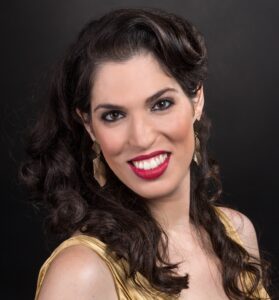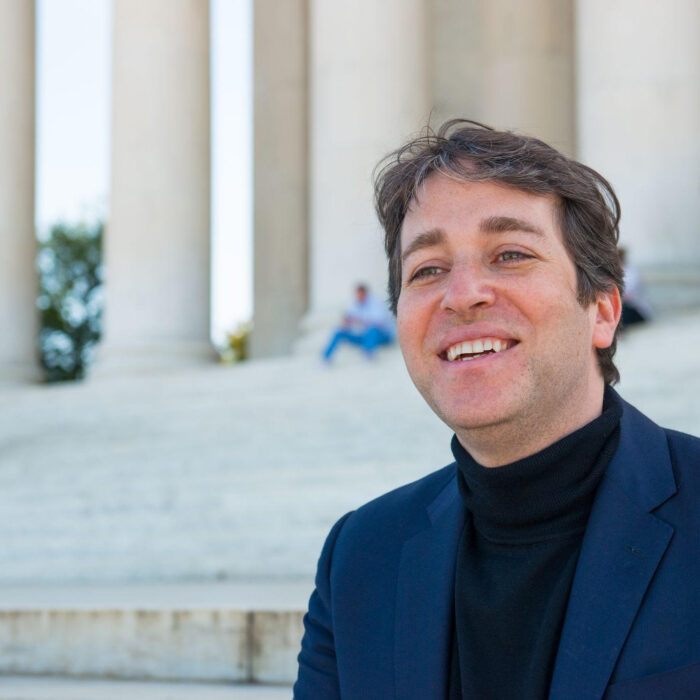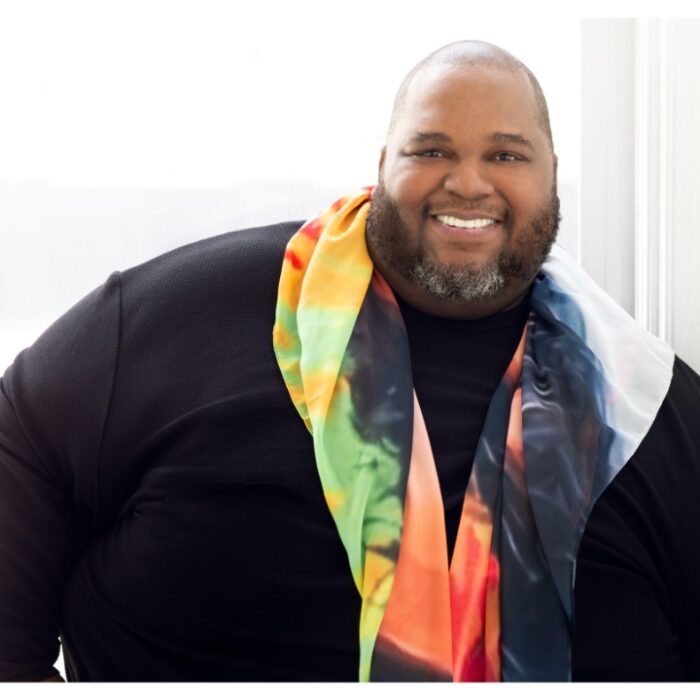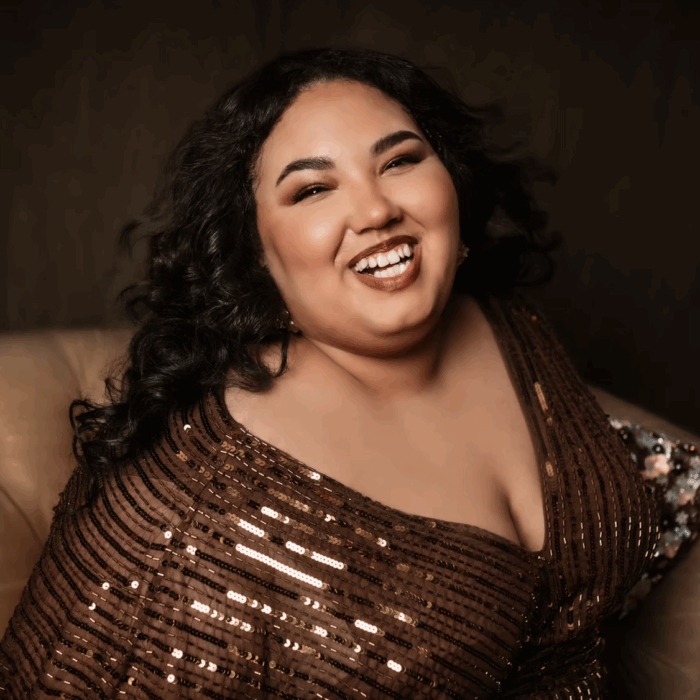
Q & A: Na’ama Goldman On Her Forthcoming Role Debut As Cesira At This Month’s Wexford Festival
By Alan Neilson(Photo: Maria Rosenblatt)
With the start of the Wexford Festival Opera now only a matter of days away, OperaWire has been busy with recent interviews featuring some of the artists involved. One of the more intriguing productions at this year’s festival is “La Ciociara,” set in Italy during the Second World War. Having just interviewed its composer, we thought it would be a good idea to follow up by interviewing mezzo-soprano Na’ama Goldman, who is playing the character of Cesira, around whom the drama plays out.
The Israeli mezzo has a firmly established international opera career, appearing across Europe in a wide variety of roles. After she finishes at Wexford, she moves on to Copenhagen, where she will appear as Charlotte in “Werther” at the Royal Danish Opera, followed by Ravel’s “L’Enfant et les Sortilèges” in Tenerife and then De Falla’s “La Vida Breve” in Metz.
Earlier this year, she released an intriguing CD called “Legata,” in which she explores Jewish music from a cross-cultural perspective.
In addition to her busy schedule and numerous commitments, Goldman was delighted to make time for an interview with OperaWire, and it turned out to be a fascinating experience in which she talked enthusiastically about a range of subjects.
OperaWire: Describe your pathway into opera.
Na’ama Goldman: l have always loved music. From a very young age, I spent a long time in music schools and the conservatory learning the piano, where I also studied composition. Then, after finishing high school, for the first time in my life, I didn’t have a musical routine to follow. I was waiting to do my military service, so to fill the gap, I auditioned for a female vocal ensemble. They accepted me, but only on the condition that I take voice lessons, which I did. However, it did more than fill the gap for a few months; it made me realize I really loved singing, especially its connection with acting. I knew then this would be my career. And so I continued along this route so that every time I managed to get home from my military service, I used to take as many voice lessons as possible. I enrolled at the music academy in Jerusalem, then joined the Israeli Opera Studio, which subsequently developed into an international career.
OW: When did you get your first big break?
NG: It was when I was 26, while I was in my second year at the Israeli Opera Studio. I was covering the role of Mercedes in “Carmen” at the Masada Festival, which took place on a mountain in the desert in the open air. It was a big event, conducted by Daniel Oren. It had international stars and international media coverage. The singer playing Carmen didn’t arrive, and the artistic director, concerned that the stand-in might also become sick, asked me to learn the role of Carmen a week before the premiere. I was only young and, although I knew the main songs, I didn’t know the part. I had to study and learn it very quickly. As it turned out, I did have to stand in at the last minute at the dress rehearsal. It was very intimidating. It was open to the public, and there were 8,000 people in attendance. I was learning it up to the last minute. Even four hours before curtain-up, I still didn’t know the complete role. Somehow I managed to do it, and the next day was the premiere. Nothing had changed, so I was asked to perform the premiere, which was live on TV. I became a major celebrity overnight in Israel, for at least two and a half days. It was incredible.
Although I must be honest, I don’t actually remember much about it. My only memory is walking out on stage for the applause at the end. Obviously, I didn’t get a contract with La Scala or Covent Garden the next day, but I got an experience that few people ever receive at such an early age, and this helped me enormously when I started auditioning in opera houses across Europe. I think it helped me open doors. It really was a watershed experience: there was my life before “Carmen” and my life after “Carmen.”
OW: Describe your voice.
NG: I’m a high mezzo-soprano with a nice lower range. So my voice has a lot of bright and dark colors. Critics often comment on the radiance of my voice, and I like to nurture this aspect. It is a versatile voice, but I am not a Rossiniana. I can sing Rossini roles, but for me, it is like going to the gym; I have to train the voice to sing them.
OW: Which roles do you feel most comfortable singing?
NG: My aim as a vocalist and an artist is to feel comfortable in everything I do. I am very familiar with the Italian repertoire, and my education was centered on bel canto. I have also done a lot of French opera, and so I feel very much at home with that. Although I haven’t done much German opera, I do sing a lot of lieder. I really believe, however, that if you have good technique, you can adapt yourself to most genres. I like to think I’m very versatile in this respect, and I love challenges.
OW: You will be singing the role of Cesira in Marco Tutino’s “La Ciociara” at Wexford later this month. How do you visualize the role?
NG: At the moment, I am in rehearsals, so I’m in the process of discovering her. I am working on finding the character of Cesira within myself.
She is certainly a very strong woman, but she is also very hard; she’s been through a lot in life. Although we don’t know her backstory, we can see from her reactions the turmoil around her that she is a tough person. She’s not very sentimental. However, beneath the surface, she’s a very emotional and sensitive person, but the situation does not allow her to express this side of her nature; she is living through a war. She’s trying to survive in a man’s world, and she has to be very careful. She has to protect herself and her daughter from men who want to hurt them physically. She cannot afford to be too delicate. She is also a fairly simple woman, certainly not a refined woman, so her body movements are not delicate. It is the same with her facial expressions or gestures.
It is in her love for Michele that we can see her sensitivity. He brings this part of her nature to the fore by showing her a different side of men, in which they can be very gentle and good to women, and this opens new horizons for her. So there are two sides to her nature, which she starts to realize towards the end of the opera. You can’t just be delicate, nor can you just be hard. It is a balance.
For me, the most emotionally difficult scene was not her rape or the rape of her daughter, but the next scene in which he tries to comfort her. Cesira has been raped, but all she cares about is her daughter. She wants to console and comfort her but is unable to do so. She cannot find the right words to say, what to say. Her daughter turns her back on her; she is angry with her, and they end up fighting with each other. As a mother, Cesira is completely destroyed, and she breaks down and sings her daughter a lullaby. It’s such a beautiful moment and the music is so gorgeous. When we first did this scene in the rehearsals, it was so emotional. There wasn’t a dry eye anywhere. Even in the last scene, when the mother and daughter made up, we were all crying. It really is a very emotional opera. I’ve played many characters, but never one as emotional as this.
OW: How do you find Tutino’s music? Is it easy to sing?
NG: He writes very well indeed for the voice. It was, however, challenging to study the role. It is contemporary music and has a different realm of tonality. It is not atonal, but it is something that needs to be studied and learned. Once you know it, it’s easy to sing.
I must admit, I’m quite in awe of Marc Tutino. People claim opera is dead. Of course it is not, but people say this. The public seemed to have lost trust in contemporary music. But Tutino’s music is an example of how contemporary opera can still move people. He has done a wonderful job. It is a perfect example of how opera can move forward. It is accessible and easy on the ear, with many beautiful melodies.
OW: What can the Wexford audience expect from this production?
NG: It will be an unforgettable evening in which the audience is going to be confronted with many strong emotions based on love relationships between family members and partners.
It will be a traditional production presented in the time in which it is set, during the Second World War.
OW: Do you think non-Italian audiences will be able to relate to the situations related in the opera, which draw directly on the Italian experience?
NG: I’m not Italian, and it speaks to me. There were incidents and things that were new to me. For example, I didn’t know about the details of the civilian side of the conflict in Italy, but war is a situation in which everybody suffers. There are no winners, and this is something most people understand even if they’ve never experienced war. It is human beings who are suffering, and we’re all human beings. So it’s something everybody can relate to. So even if people don’t know the particular details of the conflict, we can easily understand the people’s suffering and emotions. The audience may miss or not understand the significance of small details, but they will connect to their emotions and situations, and the narrative is not difficult to follow.
OW: How have you found working in Wexford?
NG: I love Wexford. It is a very special place for me. This is my second time here. In 2014, Rosetta Cucchi gave me a great opportunity by casting me in the role of Salome in Mariotte’s opera “Salome.” Coming back here is just wonderful. It has changed so much! The town is full of coffee shops, restaurants and new shops. It has become a really cool place.
Also, the theatre is great. The entire staff makes you feel so welcome. It is a great working environment.
OW: You recently released a CD called Legata. What is the idea behind it?
NG: It is a very special program of music that I created together with Giulio Zappa a few years ago for a special concert in Italy, commemorating the International Holocaust Remembrance Day. We’ve been performing this program ever since on different occasions and in many concert halls. We wanted to show that religion has a cultural side. So we took Jewish composers such as Weil, Korngold and Mahler, as well as contemporary composers like Eyal Bat and even a non-Jewish composer, Ravel. The idea was to explore the cultural side of Judaism outside of religious stereotype. Mahler, for example, was Jewish but had nothing to do with Judaism. He was completely secular. We included Ravel’s “Deux Mélodies Hébraïques” as an example of how a non-Jewish composer perceived the Jewish musical tradition. It is a very mixed program. It makes emotional and intellectual connections across cultures, with Judaism acting as a bridge. The songs seem to speak to each other.
By listening to this recording, I hope that the listener is able to see that we all carry stereotypes about what a religion is, but in the end, it is the cultural aspects, which are filtered through religion, politics or geography, that we can all enjoy. Culture does not have to divide people. I know it is a big vision to impose on the listener, but music is capable of opening hearts and minds.



